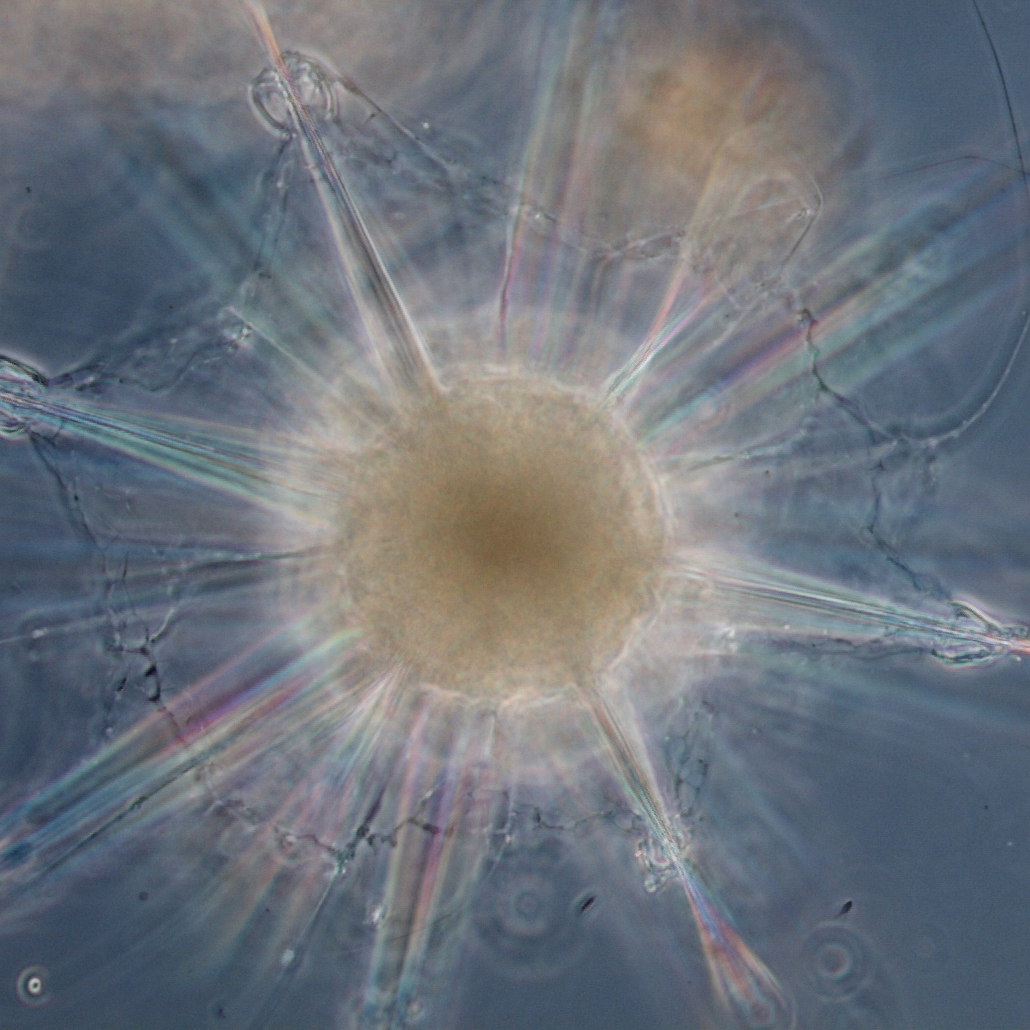Leading Scientists from 17 Institutions Receive Awards to Conduct Research in MBL Whitman Center

Twenty innovative scientists from 17 institutions and five countries have been named recipients of 2016 Whitman Center Awards by the Marine Biological Laboratory. These leading scientists will receive funding and support to conduct fundamental biological research in the MBL’s Whitman Center, a vibrant, interactive research community that annually includes more than 100 principal investigators from academic institutions around the world.
“The 2016 Whitman Center awardees are an extraordinary group of investigators exploring basic scientific discovery in a wide array of topics all highly relevant to the strategic vision of the MBL,” says Jonathan Gitlin, Director of the Division of Research at MBL. “I am grateful to our committee for identifying these individuals from a highly competitive group of applicants.”
 Astrolithium, a marine microbe taken from a sedimented sample of seawater near Woods Hole, Mass. Credit: David Patterson, Linda Amaral Zettler, Mike Peglar and Tom Nerad (micro*scope).
Astrolithium, a marine microbe taken from a sedimented sample of seawater near Woods Hole, Mass. Credit: David Patterson, Linda Amaral Zettler, Mike Peglar and Tom Nerad (micro*scope).Several of the awardees are coming to the MBL for the first time to launch a new project, while others will continue research programs they established in the Whitman Center in prior years. All will benefit from the Whitman Center’s convening and collaborative environment, which is dedicated to offering scientists the space, time, inspiration, and support to intensively pursue research of fundamental importance.
Among the research projects that first-time Whitman Center awardees will initiate are:
- Studying circadian signaling mechanisms in the eye of the frog, Xenopus tropicalis, using genome editing technologies
- Developing computational imaging strategies to help MBL biophysicists develop new generations of microscopes, and MBL biologists to answer key questions about cellular structure and embryonic development
- Deciphering commonalities across species in the regulation of gene expression during embryonic development
- Exploring the evolution of parasitism by comparing traits and structures in non-parasitic marine protozoa with those in related parasites from the Apicomplexa phylum
- Developing marine amoebae to serve as microbial model systems for the emerging field of evolutionary cell biology, which is limited by a dearth of model systems to represent all branches of the taxonomic tree
The full complement of 2016 Whitman Center awardees includes five recipients of Early Career Awards, which were announced last week.
—###—
The Marine Biological Laboratory (MBL) is dedicated to scientific discovery – exploring fundamental biology, understanding marine biodiversity and the environment, and informing the human condition through research and education. Founded in Woods Hole, Massachusetts in 1888, the MBL is a private, nonprofit institution and an affiliate of the University of Chicago.